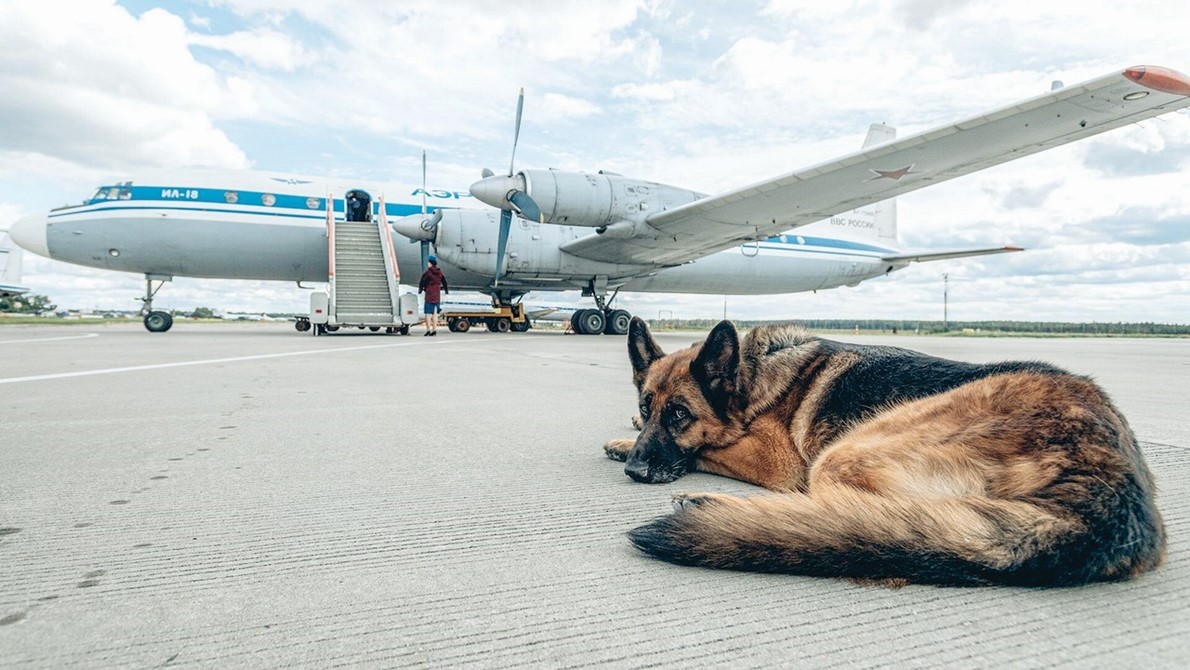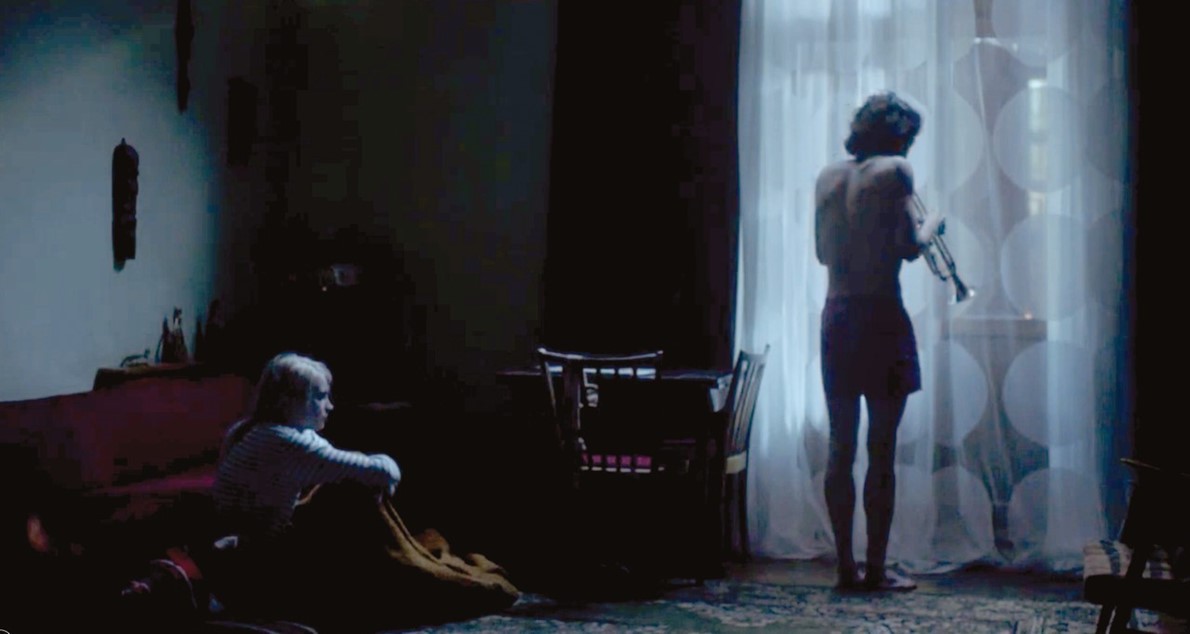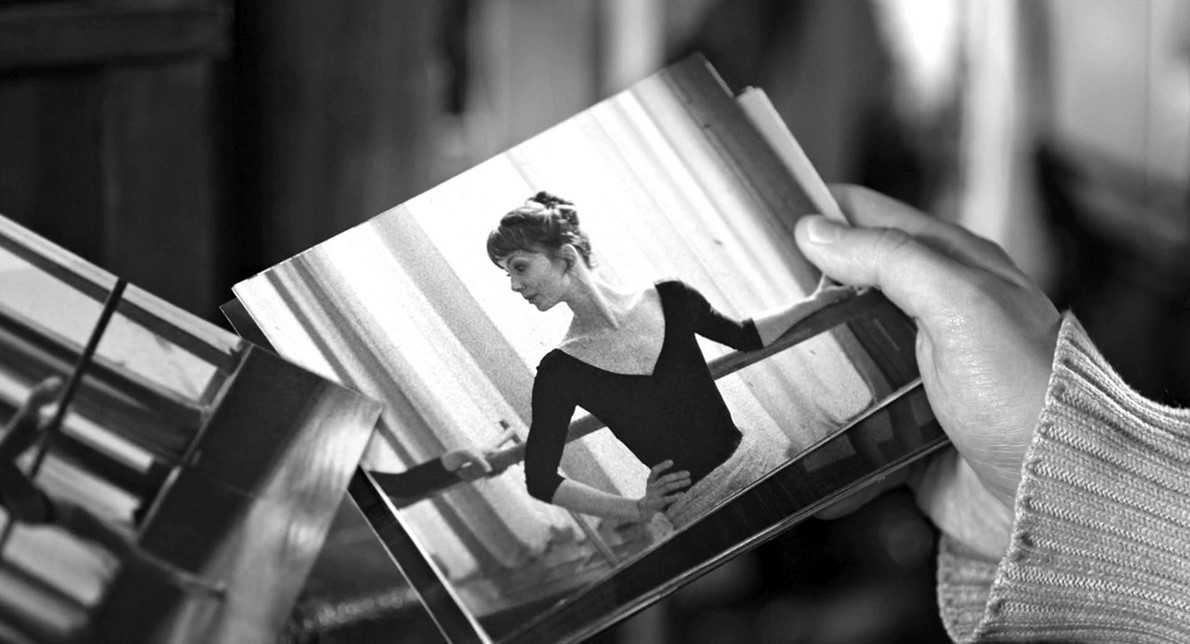Russian cinematography has overwhelmed the
international film scene with raw
energy and innovative capacity. From art films and independent docu-films to
traditional blockbusters, beautifully shot contemporary masterpieces offer a
spectacular insight in the condition of the modern Russian state and the
essence of its culture. More and more, it has become clear that Russian cinema
is an exceptional force to be reckoned with.
اضافة اعلان
Organized by the
Royal Film Commission (RFC) in cooperation with the Russian Film Festival, the
Russian Film Days start on Monday. The three movies to be shown, and which
represent different cinematographic schools, will be screened at the RFC
Outdoor Theater.
 ‘A Dog Named Palma’,
by Aleksandr Domogarov Jr
‘A Dog Named Palma’,
by Aleksandr Domogarov Jr
The beginning of the story echoes real events. A man with a dog is not
allowed on board a plane, and business demands that he urgently get on a
flight. As a result, the poor dog remains at the airport, and its unlucky owner
flies to another country, deep down burning with shame.
The dog
literally settles at the airport. No matter how much they drive her away, she
returns to the runway the moment the next Il-18 lands, because it was on such a
plane that her owner flew away
The poor animal
would have hung around if Kolya, the son of one of the pilots, had not made
friends with her. Kolya only recently met his father, having come to live with
him after the death of his mother. Their relationship does not work out right
away, so communication with the dog becomes a real outlet for the boy.
Over time,
Palma becomes an outright legend, programs are filmed about it, bags of letters are
sent to the airport, and Kolya carefully watches so that no one would offends
this devoted animal. And so everything would have continued if the owner of the
dog had not arrived on one of the planes.
It was a shock
both for Palma and for Kolya, who risked losing the only close creature. The
process of returning the dog became the catalyst that improved Kolya’s
relationship with his father.
 ‘First Snow’,
by Natalia Konchalovskaya
‘First Snow’,
by Natalia Konchalovskaya
This is the feature debut of director Konchalovskaya. First Snow is
personal; it intertwines life experiences and observations of loved ones and
acquaintances.
The director
raises social questions about relationships with parents, the right not to
depend on the opinions of others, and not try to fit into the fictional
framework of society in career or personal life.
Lonely
24-year-old Kristina (Yulia Shulyeva) is a graduate of MGIMO. After receiving
her diploma, she is invited to an internship at a large consulting company
where she will have to promote carnivals and multi-cereal flakes. The job is
not to Christina’s liking; she dreams of finishing her internship as soon as
possible to look for a new place where she will be comfortable.
Christina’s mom,
Marina (Elena Morozova) is a realtor, and she just loves her job, because there
she can meet bachelors looking for luxurious housing. This is how she met
Georgy (Ivan Agapov). In the evenings, Marina writes romance novels about
wealthy foreign life, such as somewhere in Monaco. At the same time, she is
sure that her daughter must marry a wealthy man, so she constantly gives advice
to Christina on how she should behave with the opposite sex.
Unloved work and
unsolicited advice bring Christina to burnout, and she so wants to breathe
deeply and taste freedom.
The boss of the
main character, Oksana (Marina Manych), is a businesswoman, a self-made woman.
She has everything one can dream of, except for understanding in the family.
She can only talk frankly, which she often does. Oksana’s 10-year-old daughter
Alice (Anna Peresild) runs a video blog “Alice in the land of hamsters”. Oksana
is concerned about her daughter’s behavior and talks to a psychologist, who,
according to Oksana, will help form a healthy psyche in the girl and teach her
to get along with others. Alice does not like it, but she is forced to attend
the sessions. Only a video blog and a hamster make the girl happy.
In the end, it
is this animal that will bind high school student Pavel (Mark Eidelstein),
Alice, and Christina. Their meeting will turn the lives of the heroes upside
down. Moreover, all of them will gain long-awaited freedom as soon as the first
snow falls.
 ‘A Frenchman’
by Andrey Smirnov
‘A Frenchman’
by Andrey Smirnov
A Frenchman as an archetype in
Russian culture has an unenviable fate:
he is always an exile, a hermit.
Andrei Smirnov’s
black-and-white film happens at the end of the 1950s. Pierre Durand (Anton
Rival), a graduate of Ecole Normale, goes to the Soviet Union for an
internship. French students often came to Moscow universities during
Khrushchev’s time. Among them were Jacques Catto, Geneviève Joannet-Kostandi,
and Georges Niva, a friend of Andrei Smirnov. The Frenchman, in general, is
very literary. Literature in film narration is the director’s favorite
technique: in Angel (1967), he translates the complex syntax of Yuri Olesha
into the language of cinema, in Autumn (1974) he refers to the poetics of
Tsvetaeva and Pasternak, and in Once Upon a Time There Was a Woman (2011) he
connects the chronicle with the Apocrypha and Christian eschatology.
In the film A
Frenchman, sharp kitchen dialogues of the 1960s are played out: political
questions and romantic irony, lyrical intonation and sarcastic pun, the love
line is closely intertwined with political intrigue.
The film starts
with a breakup and ends with separation. Farewell and return are two points of
support, heaven, and earth, between which the balloon of human melancholy spins
and spins. Three French friends — like Pierrot, Harlequin, and Columbine —
argue about wine and politics. Pierrot-Durand, in the Algerian question, on the
“imperial side”: Algeria must remain a French colony, otherwise why would five
generations of soldiers have shed their blood? How will his worldview change in
the country of space and ballet?
Although
politics has nothing to do with it, Durand is simply for justice, or so he
thinks, despite the French Communist Party, friends who stand up for the ideals
of the proletariat, and other conventions. Harlequin-Jean-Marie (Jérémy Duval)
hates everything bourgeois, but capriciously claims that the wine smells of
cork and goes to Algeria for war. Colombina-Nicole (Lucy Aron) is left alone.
The film has real
historical roots — in the 1950s, a delegation of French Slavists came to Moscow
State University, including Georges Niva, who translated Solzhenitsyn, and
Andrei Bely. “Frenchman” is dedicated to dissident Alexander Ginzburg, and his
colleague Vera Lashkova played a small role in it. Smirnov seems to have no
desire to determine the fate of an entire ethnic group, as in his previous
epic. However, thanks to its focus, integrity, and confidence, The Frenchman
becomes a reminder to him (and to those who have already forgotten, and those
who never knew) what a fantastic feeling it is when the frost weakens, the
temperature drops, and the air becomes softer.
Read more Entertainment
Jordan News



